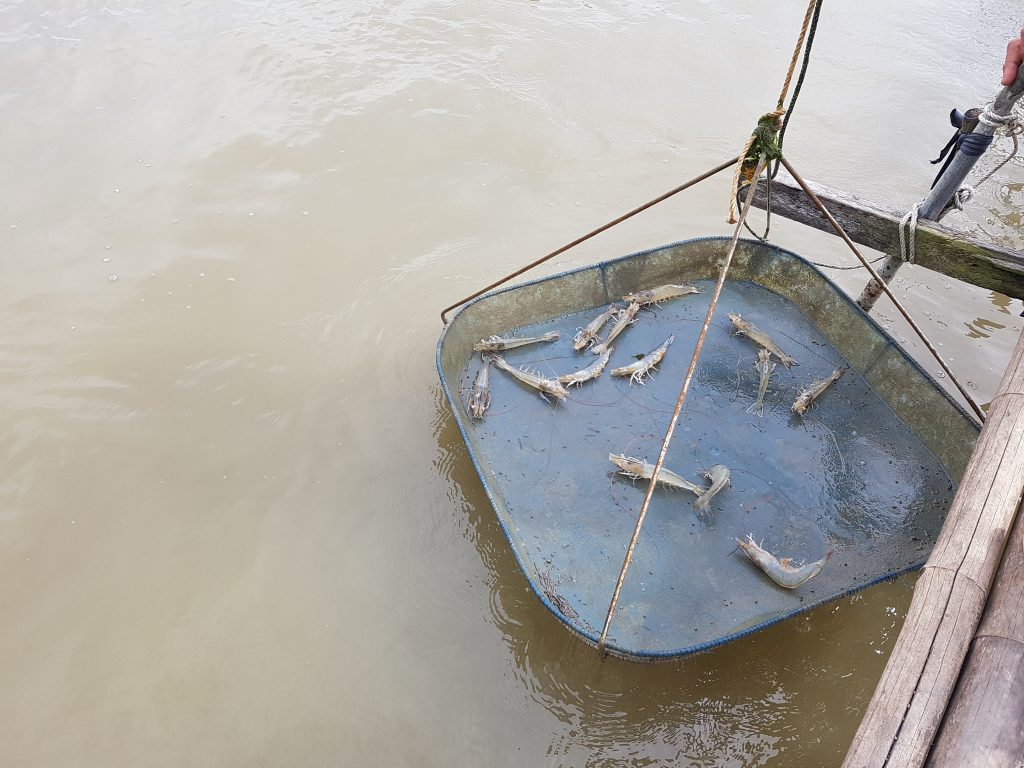
A globally beloved food, Shrimp, known for its delicious taste that comes from being well-raised and receiving the essential nutrients it needs to thrive. This ensures that shrimp are robust and have a sweet, succulent, and flavorful taste. Shrimp farming is one of the most challenging forms of agriculture and aquaculture in any market.
Shrimp have specific nutritional needs for their growth, development, and molting. These requirements include protein, fat, carbohydrates, vitamins, and inorganic matter.
Protein
Protein is one of the essential nutrients for shrimp, crucial for their growth and survival. It is also a major component of shrimp food and a significant cost in shrimp nutrition. Different sizes of shrimp have varying protein requirements. For example, white shrimp at the post-larvae stage, with a size of 0.5 grams, require 30-35% protein, and white shrimp at the post-larvae stage, ranging from 1.4 to 8.5 grams, require 32% protein.
Fat
Shrimp require fat for their growth and reproduction. Shrimp living in saltwater have a low ability to digest and utilize fatty acids because they are cold-blooded animals, and their body temperature depends on the temperature of the water, which is relatively low. Therefore, it is necessary to use low-fat components in shrimp food to mimic the natural diet of shrimp, which typically contains low-fat content. Examples of such components include soybean oil, vegetable oil, and fish oil from freshwater and marine sources.
Carbohydrate
Shrimp use carbohydrates as an energy source. Their carbohydrate requirements are not constant because the utilization of carbohydrates by shrimp depends on their ability to digest them. Shrimp can digest various types of carbohydrates, such as alpha and beta amylase, maltase, sucrose, lactase, and cellulase. Among these, cellulose serves as a more significant reserve energy source rather than being used as a nutrient for shrimp consumption.
Vitamin
Vitamins are organic compounds that shrimp require in very small quantities, but they are essential for the growth and health of shrimp, especially in intensive aquaculture systems. In natural environments where food is scarce, most shrimp cannot synthesize sufficient vitamin on their own. Therefore, supplementing vitamins in their diet is crucial to enhance growth rates, survival rates, and productivity.
The supporting minerals for shrimp molting
Shrimp molting is an important event in a shrimp’s life. It’s when they shed their old shell to grow a new, bigger one. This helps them adapt to their surroundings and get bigger. While they have their new shell, they’re a bit vulnerable to predators, but it’s a necessary process for their growth and survival in the water.
Supporting shrimp molting involves providing essential nutrients. Shrimp need specific trace minerals to ensure a healthy shell and soft tissues, which are vital for the molting process. These minerals act as cofactors and activators in various enzymes that play a role in shrimp metabolism.
Magnesium (Mg)
Magnesium is the most essential mineral for molting. It is a mineral found in the body structure of shrimp, with 70% in the shell and the remaining 30% in the tissues and blood. It plays a vital role in various metabolic processes, including enzyme activation, protein synthesis, and energy production. It also contributes to regulating heartbeats and muscle contractions. Any excess magnesium is excreted along with waste.
The consequences of magnesium deficiency include:
– Fluctuations and reduced stability in water alkalinity.
– Slower shell hardening after molting, resulting in stiff muscles and potential heart problems.
Calcium (Ca)
Calcium is important for shell formation, maintaining the body’s acid-base balance, blood clotting, muscle contraction, and the absorption of vitamin B12. Normally, calcium accumulates in the liver and hepatopancreas in the form of calcium phosphate salts and is a component of the external structure of shrimp.
Effects of calcium deficiency:
– It can lead to thin, soft shells in shrimp.
– The shells may harden slowly after molting.
Shrimp can efficiently utilize magnesium when there is a balanced ratio with calcium, maintaining a 3-to-1 magnesium-to-calcium ratio.
It use calcium in a 1:1 ratio with phosphorus for maximum efficiency. Calcium is better absorbed into the tissues than phosphorus. Calcium absorption is enhanced when vitamin D is present.
Sodium (Na) and Potassium (K)
Sodium is an element found in the body of shrimp. It makes up about 90% of muscle composition, along with potassium. Sodium and potassium are highly concentrated minerals in the shrimp’s circulatory system, with lower levels compared to the surrounding water. They work together to control and maintain the balance of minerals inside the shrimp’s body and the external environment, ensuring constant equilibrium. Chloride also assists in this process, with magnesium and calcium playing supportive roles.
Sodium and potassium help regulate the body’s acid-base balance and are involved in muscle function and the nervous system.
The consequences of sodium and potassium deficiency in shrimp include decreased appetite, slow growth, weight loss, and changes in blood acidity. Additionally, sodium is vital for enzyme activity, particularly in protein digestion. A lack of sodium can lead to reduced protein digestion due to its role in stimulating the enzymes responsible for protein breakdown.
Chloride (Cl)
The chloride levels inside shrimp and seawater are similar, which doesn’t affect the balance of other minerals.
When chloride is in the blood, it helps maintain the acid-base balance of enzymes. It controls the movement of dissolved substances between the body and the environment and stimulates the activity of enzymes called amylases, which break down carbohydrates effectively.
Intensive shrimp farming in low-salinity conditions can result in shrimp lacking essential minerals. This can lead to them not fully utilizing carbohydrates for nutrition, which is another reason why shrimp may lose weight, develop soft shells, and become weak.

